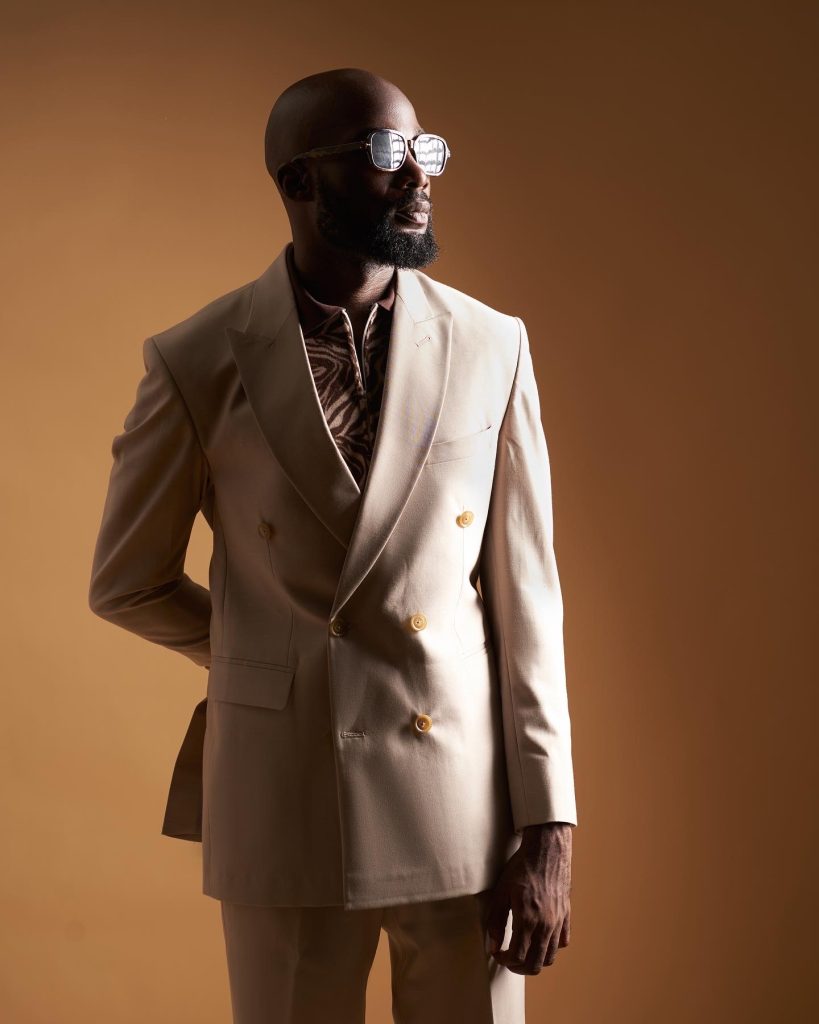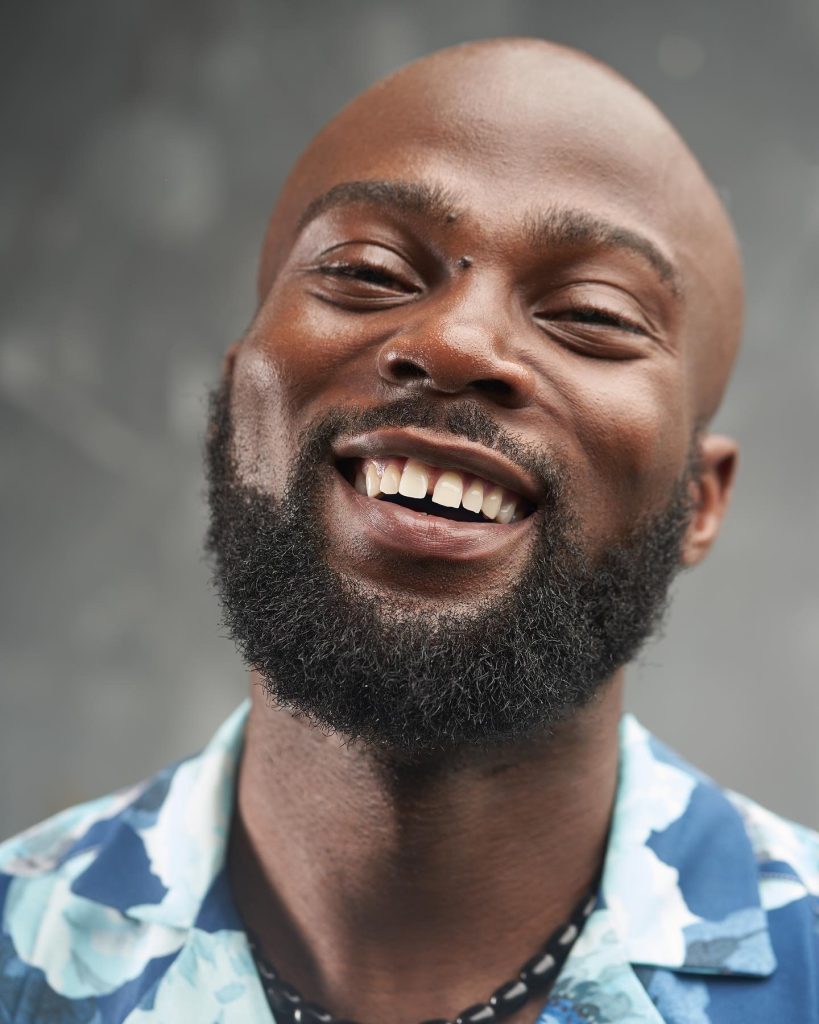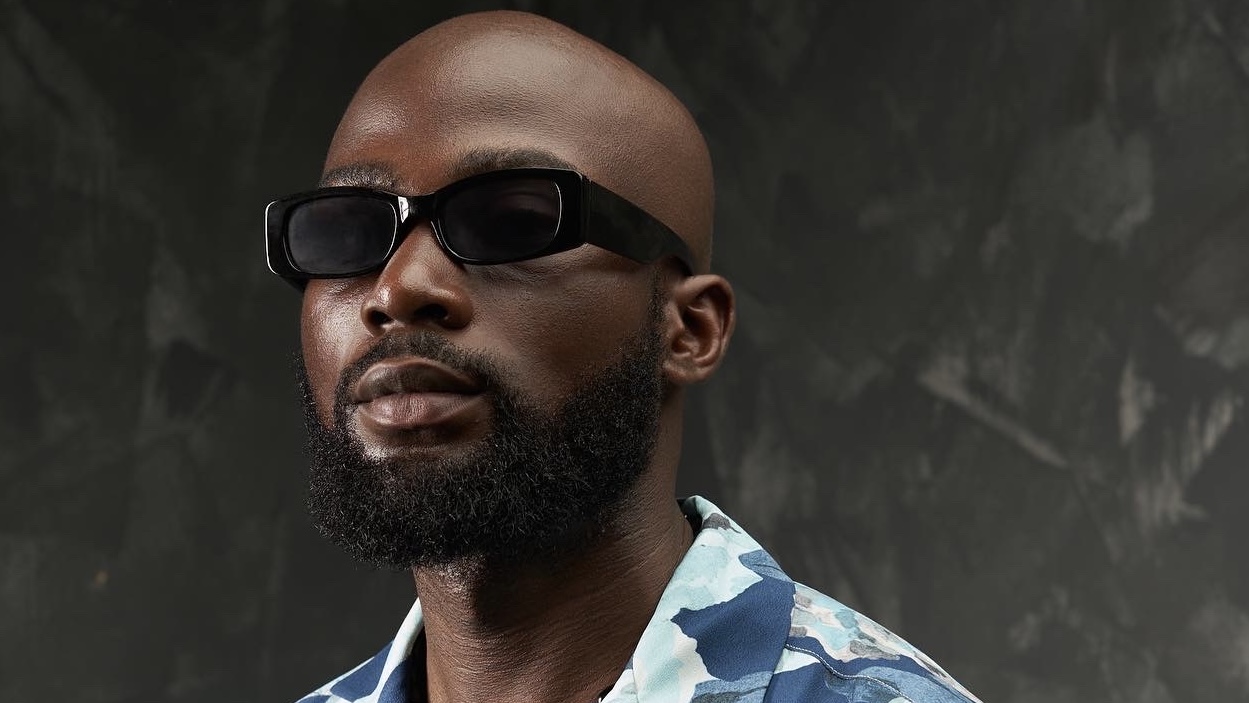Kolapo Oladapo’s journey has been anything but linear. His work has spanned photojournalism, political satire, radio, tech, and music. It might seem random, but there’s one unifying fact: at the core of every single thing he does is an unwavering commitment to curiosity, storytelling, and problem-solving. He has built platforms like Clout Africa to give young people space to dream, and also shown what impact looks like on the ground, like renovating a school’s music room to give girls real access to music education. In this interview, he reflects on the early stages of his career, exploring how documenting everyday Nigerian life shaped his worldview, why empathy and curiosity are essential to his creative process, and what it takes to build lasting influence.

You’ve moved fluidly between photojournalism, radio, tech, and music. What would you say is the common thread that ties everything together?
Problem solving. Everything I’ve done — even in music, in the case of Aux — was about creating solutions. For example, people were in our DMs and emails asking how to get their music on the radio. The question became: how do we help them, and how do we create a system where we can give them what they want while also monetising content?
In tech, it was the same. Looking at consumer pain points, identifying needs, and finding ways to alleviate them, helping people get from point A to point B in the quickest possible time. So yes, problem-solving for sure.
Your career began with political satire that went viral, and later, photojournalism in the North. How did these early projects shape your storytelling today?
Honestly, I didn’t expect much from them. I was just going to put the work on Behance or Twitter. It wasn’t like, “if I do this, I’ll get that.” It was just me exploring.
I went to Kano, stayed there for a while, travelled through Jigawa, Bauchi, Kaduna, and of course, Abuja, where I did my externship after school. I had a camera with me, so I just started taking pictures and posting them on Twitter and Behance, and later Instagram.
The validation I got was eye-opening. People would say, “I’ve never seen this part of the country before,” or “I didn’t know this kind of market existed.” For example, when I captured the bronze market, people were shocked that it was real bronze, or when I showed vintage sewing machines and other fantastic things.
It got attention, positive attention. It wasn’t divisive; it was just appreciation. People began to see more of Nigeria, and that made me realise this work mattered.
So you’d say you’re naturally curious, an explorer?
For sure. That’s how you solve problems. Intellect is just memory, remembering what’s been done before. The reason things sometimes don’t make sense to us is that we haven’t experienced them before.
Take flying, for instance. Before planes existed, the idea of flying must have sounded stupid. But once it was done, it made sense. Problem-solving isn’t about over-intellectualising. It’s about trying, testing, doing. If you get stuck in analysis, you become paralysed, and the problem remains romanticised instead of solved.
That curiosity has taken you across Nigeria. But wasn’t it risky? Didn’t safety concerns ever hold you back?
People always ask me that. But the truth is, people ply those roads every day because their livelihood depends on it. For example, Borno is huge on farming and mining. That’s how people eat. If I avoid it out of fear, what’s my excuse when people live and thrive there daily?
I also think about how the foreign media reports Nigeria. If you only get your information from Western media, you’ll never come here. But the reality on the ground is different.
Travelling helped me become a better communicator and a more empathetic person. When you put yourself in other people’s shoes, sometimes literally, by travelling with strangers who hosted me along the way, you see Nigeria differently. My experience wasn’t “this country is dangerous.” My experience was: people are kind, generous, and eager to share what they have.
That ties into your “Invisible People of the North” series. What did that project teach you about representation?
That the more you hear people’s stories, the more your own story becomes enriched. People want to be part of something bigger than themselves. When they’re not in survival mode, Nigerians are some of the best people you’ll meet.
Travelling made me realise that people with less often have a fuller sense of community. Families, neighbours, support systems. They value what really matters. That taught me lessons I carry with me today.

Let’s move on to your time at Cool FM. As Head of Digital, you launched AUX Africa, which spotlighted future Afrobeats stars like Tems and Asake. Did you realise at the time how historic that archive would become?
No. First of all, Cool FM had a fantastic team. The conversation was about how we could fit into the digital space, and one thing that helped was that the management was really supportive and serious about it. What we were trying to build was Colors, for the artists who really deserved to be there, but didn’t have the access at that stage of their careers. That period showed me the strength of community because we didn’t really do any marketing, just a few billboards, but the momentum was really carried by the community that formed around it.
The real thing about Aux was just that we just wanted to help artists, and I think if you have empathy, putting yourself in other people’s shoes, at the base and foundation of everything, you can work in any space, because that’s the main ingredient of service.
You also worked on CLOUT Africa, which became a hub for creators, with concerts, sessions, and even advocacy campaigns like Freedom Concert. What gap were you trying to fill with that platform?
CLOUT Africa was basically born from the management saying, “Okay, we have all these guys like Tems, Oxlade and Fireboy coming through our platform and they’re shooting like rockets. How do we make money off it?”. I think when Olamide signed Fireboy to YBNL, he posted an Aux video, so it was becoming clear to the people coming after that set that this was a way in. So CLOUT was born from the management deciding to put down a bit of infrastructure and add meat around the skeleton of Aux to see how much value we could pull out of the Afrobeats ecosystem at the time. We used the learnings from Aux and the relationships we could leverage with Apple Music and other DSPs. The first set we had was Adekunle Gold, and the response to that went crazy, so it was just up from there.
Joining Apple/Platoon as the first West Africa hire was a huge step. What did building that presence from scratch look like?
Platoon already had some success in the region before I joined. So, it was already a company that had, like, this stealth success. There were a lot of things that I didn’t even know they’d done before I joined, so I was like, “It was you guys who did this and that?”. So, this company already had some success without being present here, so my knowledge of the local market and previous experience of working with Apple helped me fit into the team, and so we were able to have localised initiatives and stakeholder engagement. It has been the fastest learning experience of my life, but also the best set of colleagues I’ve ever worked with over the past 10 years. Everyone has a large risk appetite, and they’re really brilliant people.
It sounds like you’re really busy, but also really enjoying yourself.
For sure. I mean, now I’m taking time off of anything, career and stuff like that, and working more on some personal projects, working more on rest, working more on just experimentation, meeting more people in the industry, and across board, whether they’re abroad, in Nigeria, from other African countries, you know, just learning from them. Just basically knowing that what brought me to this point is not what’s going to take me further. So this year, I’ve just been up-skilling, soaking in a lot of experimentation and collaboration, just going back to that place where I started, where I was just kind of doing stuff without necessarily looking for any reward and just seeing, you know, what sticks. This time I’m able to approach things with a little bit more strategy and leverage relationships and resources like capital and knowledge that I’ve built over the years.
You also mentioned that you’re upskilling. What skills are you learning?
I’m a UX designer, so upskilling involves me just kind of learning more about business intelligence because my goal for the next five years is to understand what the African community might be, because we are going to be the determining factor for culture in the future. By 2030/2035, we’ll have the youngest population in the world, and a lot of them will have entered the job market. That’s a lot of purchasing power and disposable income. So, I’m preparing myself by basically up-skilling for that reality. Whether it’s music marketing data or whatever, that data will need to be simplified and presented in the clearest formats that people can understand. I’m learning to present data that people will need to make a decision, leverage digital channels, and digitise processes.
You were also part of the team that renovated the music room in Queen’s College. What informed that choice? Why did you decide that investing in the musical education of young girls, specifically, was important?
I think it’s two things. I was tired of doing $20,000 masterclasses for $10,000 problems. Why are we talking about these problems when we can just solve them? I was tired of panels, tired of -isms and -schisms, and everybody just kind of romanticising the problems. Some problems we have to talk about, some we don’t. For this particular program, we can just kind of know how much it costs and do it.
And, the second part of that is, I’ve seen the value of ideas being easy to proliferate. Refurbishing a music room is easy; if you have $5,000 or $10,000 to pay as a brand, you can do that. Also, to break the myth that it’s hard to work with governments, for some reason. Like, that’s a government school. And, I mean, it took us a year, everything together, but that’s cause we were building something. There’s more impact to be made, I mean, it would have been easy for me to say, oh, let’s build it in private school where they probably already have money to do anything, and we would take the pictures and have everything looking fantastic, but there’s no impact made. So by partnering with Femme Africa, that project came to life. Shout out to everybody, uh, at, uh, Queens College and QCOGs themselves. Like, it was just such an idea that everybody was ready for and ready to help us with, everybody saying yeah, it’s about time. With Afrobeats’ explosion and our young people, like, why don’t we have a proper functioning music room? This is their most spongy time, their formative years.
The best part is, we executed this with a team of women, so when these girls grow up, nobody is going to be able to tell them they don’t belong in these spaces because they have already seen these women come together to build for them.
That’s fantastic. Still on the subject of young people, as a Grammy Recording Academy mentor, what advice do you find yourself giving young African creatives the most?
That they must be ready to do the hard things. The reason we’re here is, nobody wants to do the hard things; they just want to get rich in an instant. Social media is partly to blame; we romanticise the results without seeing the process. So, Learn to do the hard things. There’s a lot of suffering in being creative. That’s why when you actually put out the work, it’s called the project release because you actually feel relieved.
And if you say you want to be one of the pillars of your industry, really look at what the pillar does. It carries all the weight of the whole building on itself. So, whatever your goal is, be ready to do the har things.
What’s one misconception about working at the intersection of tech, culture, and music that you’d like to correct?
People think you know what you’re doing, that you just have this board with a master plan on the wall of your house. It’s actually just experience, and constantly being prepared for the worst-case scenario.
If you had to pick one project in your career that best represents who you are, which would it be, and why?
I would say the Queen’s College one, because it’s just one thing that kind of follows everything that happened before it, and like, the resourcefulness of it. Sometimes you pray for big projects, then you take them, and immediately start learning more about patience, learning more about communication. Working with the government, there’s a way you need to know how to communicate. It really tested all the skills that I’ve gained, and beyond that, I like the way that we did it. Like, I like the evidence of actual execution of an idea.
What excites you most about the future of Africa’s creator economy in the next 5 years?
Apart from the fact that we’re becoming the determinants of pop culture, there’s also this drive for ownership that has been rapidly growing across the millennials and Gen Z. Nobody is fine with just working anymore; we want to own what we work for. It’s evident in our local brands, and in the fact that, across industries, most young people working a day job also have something to call their own, whether they’re also a nail tech on the side or building some other thing where they are not being dictated to by anyone. It’s amazing to see.

Leave a Reply